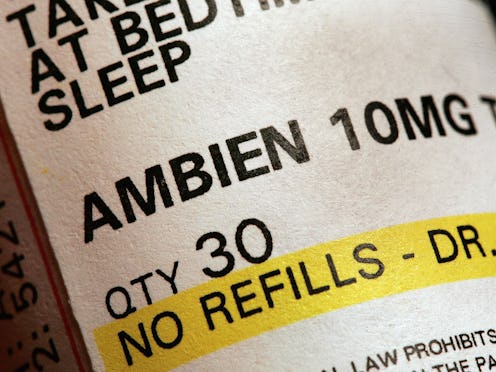News
9 Million Americans Regularly Pop Sleeping Pills

New figures released from the Center Of Disease Control estimate that nine million Americans — or four percent of the adult population — pop prescription sleeping pills at least once a month. Reliance on sleeping pills like Ambien is also ever-increasing, particularly amongst white, educated, and older females.
Still, nine million is only a small slice of the roughly 50-70 million Americans that suffer from chronic sleep disorders or deprivation. Most people who suffer from sleep problems (around seven in eight) don't seek prescription medication at all — even though use of the medications appears to be growing nationwide. Researchers indicate that the demographic of educated 50-somethings are most likely to treat sleep issues with prescription meds, whereas other might use natural remedies.
"It's a sandwiched group, who has family — not only children, but also probably elderly parents," said one CDC researcher. "Still, you're likely to be in the workforce, so you get squeezed at both ends in terms of family responsibility and job responsibility."
Sleeping pills seem to be alright for use in the short-term, but the medical community warns against the long-term risks of relying on the meds. A study commissioned in 2012 by the British Medical Journal discovered that people who were actively taking prescription sleeping pills for more than two years were almost f ive times more likely to die than those who didn't.
There are other risk factors, too that aren't, you know, sudden death. The FDA declared last year that morning-after drowsiness from drugs like Ambien was actually very dangerous, especially when driving. (The response from the medical community was essentially: "Yup, we've been saying that for years, thanks.") The agency immediately recommended that sleeping-pill manufacturers cut their dosage by half.
Other aftereffects of commonly prescribe sleeping pills have included sleepwalking, falling asleep at the wheel, and performing activities...then subsequently losing all memory of them. Still, the FDA doesn't require sleeping-pill manufacturers to conduct driving trials.